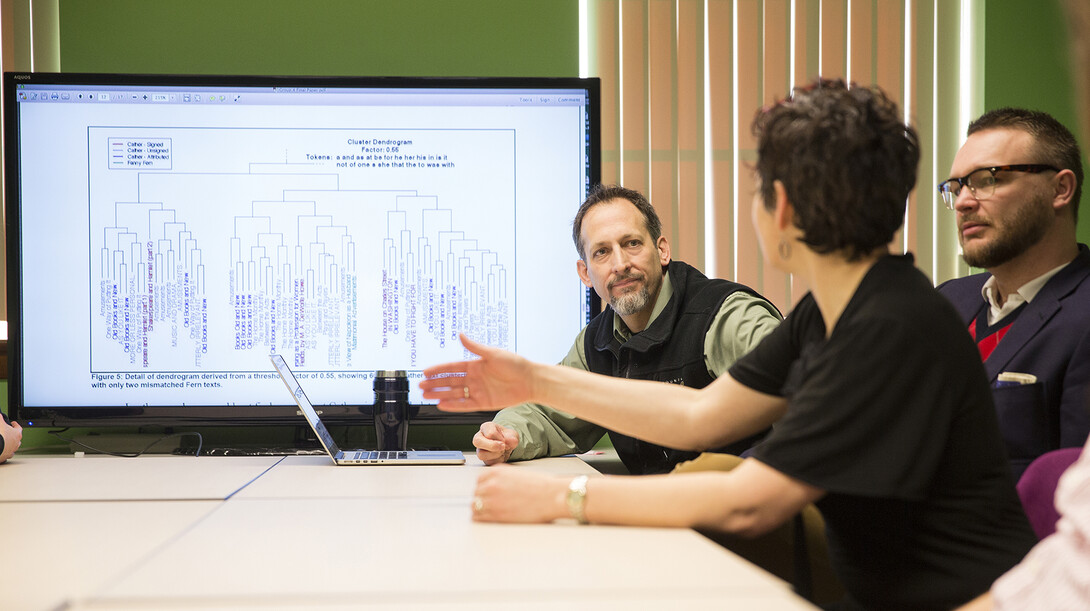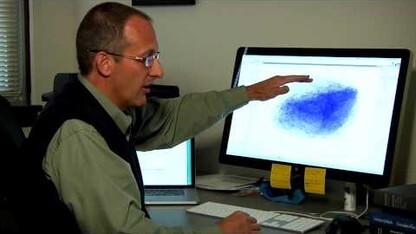
At an international conference in Switzerland next week, nine UNL students will discuss their use of digital research techniques to gain greater insight into the works of famed author Willa Cather.
Three teams of UNL students were selected to give presentations at the annual conference of the Alliance of Digital Humanities Organizations from July 7-12 at the University of Lausanne. Three of the nine students are undergraduates; the others are pursuing master’s degrees or doctorates. All studied with Matthew Jockers, assistant professor of English, who created the Nebraska Literary Laboratory in fall 2013.
A trailblazer in digital literary analysis, Jockers previously helped start the Stanford University Literary Lab in 2009. Jockers also will lead a July 7 workshop on using computer programming language for text analysis and topic modeling.
The students’ projects demonstrate ways computer analysis can be used to discover more about the works of a single author. They include:
“Exploring the Intersection of Personal and Public Authorial Voice in the Works of Willa Cather,” which compared Cather’s personal letters to her fiction and found few similarities between her novels’ narrators and her own writing voice. Students Gabi Kirilloff, Laura Dimmit, Chandler Warren and Austin Wehrwein are to present their research paper July 11.
“Quantifying ‘The Thing Not Named:’ A Computational Analysis of Willa Cather’s ‘Unfurnished’ Writing Style(s),” which examined whether Cather’s writing changed after she advocated a spare style in her 1922 essay “The Novel Démeublé.” Mikal Eckstrom, Rebecca Ankenbrand and Alex Kinnaman will present their findings during a poster session on July 10. Student Caterina Bernardini also participated in the project.
“Detecting the Linguistic Signal in Cather’s Early Journalism: Polishing the Bibliography,” which sought to create a digital tool to identify whether Cather authored unsigned or pseudonymous journalism articles. Ashanka Kumari and Grace Thomas are to present their findings during a July 10 poster session. Students Courtney Lawton, Carmen McCue and Jose Moreno also worked on the project .
UNL hosted the digital humanities conference in 2013.








